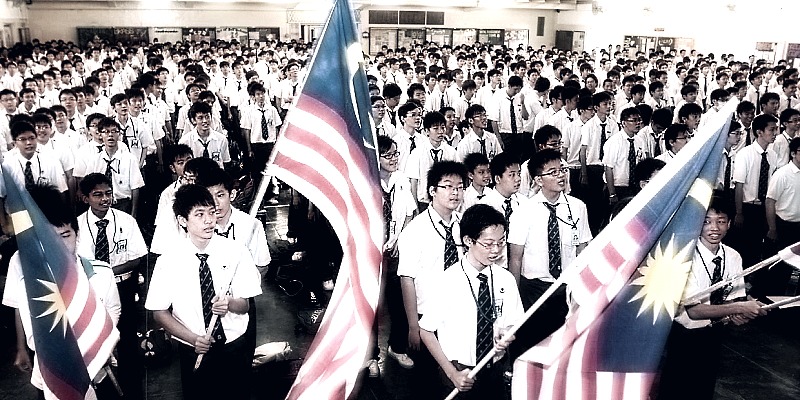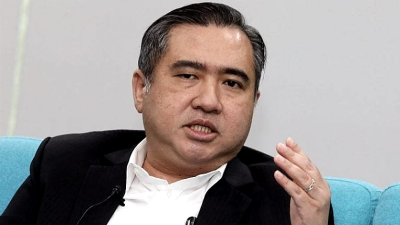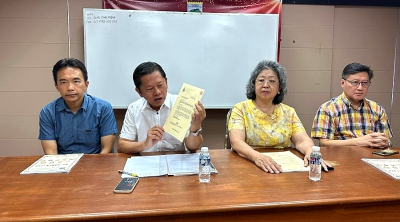Like in all previous elections, Chinese language education has found itself being a chip contesting parties would keep exploiting to win over the local Chinese community.
The 15th general election war has been very intense since the onset and no single political camp is expected to win enough seats to rule on its own after the election.
To win the support of voters and emerge victorious in the stiffly competitive battlegrounds, political parties and their candidates have come up with all kinds of gimmicks in an attempt to steal the attention of voters.
Like in all previous elections, Chinese language education has found itself being a chip contesting parties would keep exploiting to win over the local Chinese community.
Compared to the Malays, Chinese voters pale in sheer numbers, but given the fact that the Malay votes will likely be divided almost equally among the three rival camps, Chinese votes appear to be particularly crucial, especially in urban areas where their voting trend will very likely tilt the balance of the election outcome.
Where this is concerned, it is understandable that political parties and their candidates have been rushing to make pledges on what the local Chinese community is most concerned about, the issue of Chinese education.
This is definitely not the first election in which the Chinese education issue has been brought to the fore. In the last election four years ago, Barisan Nasional incorporated UEC recognition in its manifesto, although it has decided not to do so this time.
UEC recognition has been put into PH’s manifestos four years ago and now, and just two days ago, incumbent health minister Khairy Jamaluddin, who is standing in Sungai Buloh on BN ticket, said Chinese, Tamil and national primary schools are all in the country’s education system and must therefore be protected.
For decades Chinese Malaysians have been striving to perpetuate and expand Chinese language education in this country, and indeed, Chinese schools nationwide have churned out a sizable cache of talented Malaysians who have contributed significantly to the country’s development.
By right, the government as well as political parties should appreciate the positive contributions of Chinese schools towards nation-building and work hand-in-hand with the local Chinese community to promote the development of Chinese education in this country.

Of late, politicians have been waxing lyrical about Chinese education, making promises to recognize the UEC. While such promises are music to the ears of the listeners, what is way more important is how to put their words into actions.
These people generously praise Chinese schools for their remarkable contributions in nation-building and unreservedly proclaim their recognition of these schools’ exemplary quality of teaching, but what we want is more than just pretentious lip service. We want them to provide practical assistance and recognition, not sweet promises.
If politicians really mean what they say, then they should walk the talk and do something practical to help, and ensure that the government will institutionalize fiscal allocations for Chinese schools so that these schools will have ample resources to upgrade their facilities and improve the students’ learning environment.
As for UEC recognition, once the pledge is made, they should jump into action as soon as they win the public mandate to run this country. No more perpetual delays!
As Jiao Zong has said, we hope political parties do not exploit the issue of Chinese education to win the election and make promises they are not ready to honor.
Unfortunately, Chinese education will only stay in their minds for as long as the campaign period, and be completely obliterated after the curtain has come down on the election.
With such tricks being re-employed election after election, we begin to doubt how sincere these politicians are about Chinese education.
If they are really serious about the issue of Chinese education and are keen to help, they should listen to and value the appeals voiced up by Chinese education bodies.
The Selangor and KL Dong Lian Hui (Chinese school committees association) recently made a seven-pronged proposal on the pressing issues pertaining to Chinese language education in this country, including the implementation of a more diverse cultural policy, equitable education rights, availability of comprehensive teaching resources, training programs and the recognition of UEC, among others.
Meanwhile, Dong Jiao Zong has championed, among other things, a pluralistic education policy, rights to vernacular education, education equality, improvement in the country’s overall teaching quality, decentralization of education administration, freedom from excessive political intervention and abuse of power.
In a nutshell, education is a major national undertaking and any issue pertaining to education, including Chinese language education and UEC recognition, must never be reduced to political chips for the sake of winning an election.
We have heard too many “praises” from politicians, and what we want from them now is to turn their flowery words into real actions and not to take us for a ride over and again!
ADVERTISEMENT
ADVERTISEMENT








































